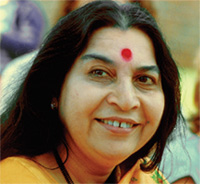References
It seems strange, in this world of religious conflict, to suggest that all the worlds spiritual texts are, in their own distintive way, describing different facets of the same thing, i.e. the Divine, but that is exactly what they are doing. Each prophet, guru, saint, poet, realised soul has attempted to bring a greater understanding of the Divine by describing a different means to Self-realisation or a different aspect of Divinity. These prophets have never set out to create 'religions'. Unfortunately ambitious people have tried to take charge of these prophetic works and have created religions in their names. Religious leaders through the ages with selfish motives have created confusion and conflict when the only purpose of these prophets lives were to enlighten our awareness to our inate inner spiritual joy.
 Tao te ching by Lao Tzu Lao Tzu was very old, when he rode on a water buffalo to retire in the mountains to a province in the western frontiers. There he was approached by a border official who urged the master to write down his teachings so that they might be passed on. Lao Tzu then retreated into the solitude of the mountain pass, wrote the Tao Te Ching, whereupon he went westward and was never seen again. more...
Tao te ching by Lao Tzu Lao Tzu was very old, when he rode on a water buffalo to retire in the mountains to a province in the western frontiers. There he was approached by a border official who urged the master to write down his teachings so that they might be passed on. Lao Tzu then retreated into the solitude of the mountain pass, wrote the Tao Te Ching, whereupon he went westward and was never seen again. more...
 Songs of Kabir Kabir is one of the most interesting personalities in the history of Indian mysticism. Born in or near Benares, of Muslim parents, and probably about the year 1440, be became in early life a disciple of the celebrated Hindu ascetic Raamanand. "O SERVANT, where do you seek Me? I am beside you. I am neither in the temple nor the mosque, neither in Mecca nor Kailash.. O friend! hope for Him whilst you live, know whilst you live, understand whilst you live: for in life deliverance abides. If your bonds be not broken whilst living, what hope of deliverance in death?..O Friend! Do not go to the Garden of flowers,in your body is the garden of flowers.Take your seat on the thousand petals of the lotus, and there gaze on the Infinite Beauty." more...
Songs of Kabir Kabir is one of the most interesting personalities in the history of Indian mysticism. Born in or near Benares, of Muslim parents, and probably about the year 1440, be became in early life a disciple of the celebrated Hindu ascetic Raamanand. "O SERVANT, where do you seek Me? I am beside you. I am neither in the temple nor the mosque, neither in Mecca nor Kailash.. O friend! hope for Him whilst you live, know whilst you live, understand whilst you live: for in life deliverance abides. If your bonds be not broken whilst living, what hope of deliverance in death?..O Friend! Do not go to the Garden of flowers,in your body is the garden of flowers.Take your seat on the thousand petals of the lotus, and there gaze on the Infinite Beauty." more...
 Shri Adi Shankaracharya's Vivekachudamani Shankara was born in a very poor family in 788 AD in a village named Kaladi, six miles to the east of Alwaye, Kerala. He exhibited extraordinary intelligence in his childhood & he began to write commentaries on the Gita, the Upanishads and the Brahma Sutras when he was only sixteen years old. His fundamental message was Advaita or Non-duality. He maintained that the Self is the only existence in the universe. more...
Shri Adi Shankaracharya's Vivekachudamani Shankara was born in a very poor family in 788 AD in a village named Kaladi, six miles to the east of Alwaye, Kerala. He exhibited extraordinary intelligence in his childhood & he began to write commentaries on the Gita, the Upanishads and the Brahma Sutras when he was only sixteen years old. His fundamental message was Advaita or Non-duality. He maintained that the Self is the only existence in the universe. more...
 Shri Krishna's Bhagavad Gita A Great warrior King, Shri Krishna is the key figure of the Indian epic 'The Mahabharata' (c. 6000 BC). The Bhagavad Gita is a small but very important part of that epic. The content of the text is a conversation between Krishna and Arjuna taking place on the battlefield of Kurukshetra just prior to the start of the Kurukshetra war. Responding to the confusion and moral dilemma of his disciple Arjuna, Krishna explains to Arjuna his duties as a warrior fighting against forces of evil & elaborates on the meaning of life and the ultimate goal of Yoga.
Shri Krishna's Bhagavad Gita A Great warrior King, Shri Krishna is the key figure of the Indian epic 'The Mahabharata' (c. 6000 BC). The Bhagavad Gita is a small but very important part of that epic. The content of the text is a conversation between Krishna and Arjuna taking place on the battlefield of Kurukshetra just prior to the start of the Kurukshetra war. Responding to the confusion and moral dilemma of his disciple Arjuna, Krishna explains to Arjuna his duties as a warrior fighting against forces of evil & elaborates on the meaning of life and the ultimate goal of Yoga.
"Just as a person puts on new garments after discarding the old ones, similarly the Atma(Spirit) acquires new bodies after casting away the old bodies. Weapons do not cut this Spirit, fire does not burn it, water does not make it wet, and the wind does not make it dry. The Atma cannot be cut, burned, wetted, or dried up. It is eternal, all pervading, unchanging, immovable, and primeval." more...
 Patanjali's definitive Yoga Sutras The yoga sutras lit. "Threads of yoga" date from around 200 BC and contain guidance to the practice of Union with the Divine, or Yoga. Patanjali is often refered to as the father of yoga, although truly speaking, the Bhagavad Gita is a much more extensive work on yoga, this yoga sutras of Patanjali contain some clear and concise descriptions of the state of yoga. more...
Patanjali's definitive Yoga Sutras The yoga sutras lit. "Threads of yoga" date from around 200 BC and contain guidance to the practice of Union with the Divine, or Yoga. Patanjali is often refered to as the father of yoga, although truly speaking, the Bhagavad Gita is a much more extensive work on yoga, this yoga sutras of Patanjali contain some clear and concise descriptions of the state of yoga. more...
 Guru Nanak, Kabir, and Namadeva's poems in Guru Granth Sahib Guru Nanak was born on 20 October 1467 into a Hindu family near Lahore, Pakistan. The first verse of his Granth Sahib reads.."By thinking, He cannot be reduced to thought, even by thinking hundreds of thousands of times. By remaining silent, inner silence is not obtained..." more
Guru Nanak, Kabir, and Namadeva's poems in Guru Granth Sahib Guru Nanak was born on 20 October 1467 into a Hindu family near Lahore, Pakistan. The first verse of his Granth Sahib reads.."By thinking, He cannot be reduced to thought, even by thinking hundreds of thousands of times. By remaining silent, inner silence is not obtained..." more
 Saint Jnaneshwar: Jnaneshwar (1271-1294) the well-known saint of Maharashtra, was not only a great Saint and master of Yoga, but a highly gifted poet who was initiated into the Natha path to Self-knowledge by his elder brother Nivrittinatha. He is the only saint in history to make explicit references to the kundalini awakening. This he did in the 6th chapter of his masterpiece, Jnaneshwari, a commentary on Shri Krishna's Bhagavad Gita. Frustrated at the ignorance of the masses, he took a living Samadhi at the age of 23 having completed some of the greatest works of devotional poetry in history.
Saint Jnaneshwar: Jnaneshwar (1271-1294) the well-known saint of Maharashtra, was not only a great Saint and master of Yoga, but a highly gifted poet who was initiated into the Natha path to Self-knowledge by his elder brother Nivrittinatha. He is the only saint in history to make explicit references to the kundalini awakening. This he did in the 6th chapter of his masterpiece, Jnaneshwari, a commentary on Shri Krishna's Bhagavad Gita. Frustrated at the ignorance of the masses, he took a living Samadhi at the age of 23 having completed some of the greatest works of devotional poetry in history.
